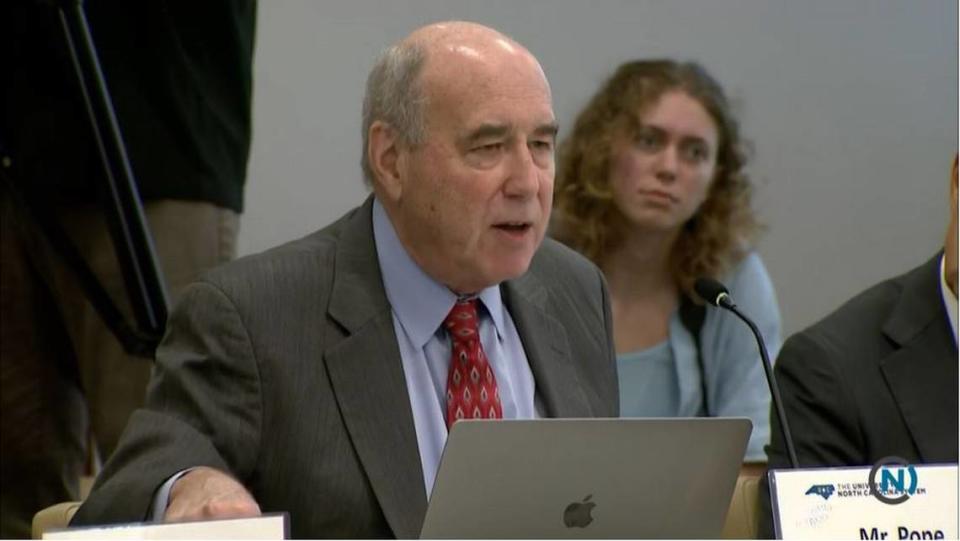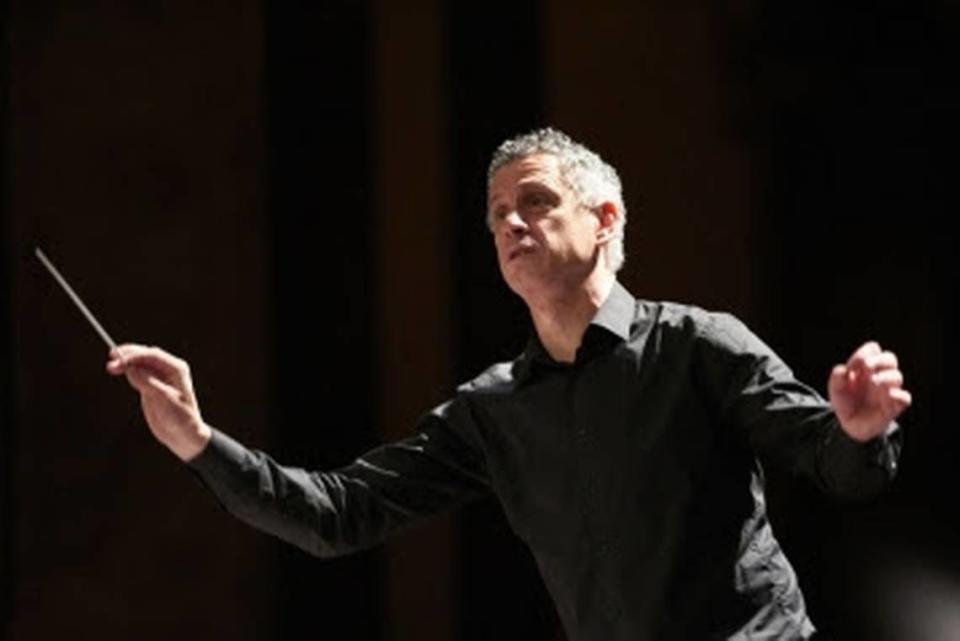Dean’s List: NC will only fund distinguished professorships in STEM subject areas
Decades after the state of North Carolina began funding distinguished professorships at public universities in the UNC System, lawmakers have decided they will only do so for professors in STEM — science, technology, engineering and math — areas going forward.
Lawmakers made the change through the state budget, which became law early last month.
The move has been a hot topic of conversation on social media over the past week, as well as among the UNC System Board of Governors at a previous meeting. The board will soon vote on a policy change to ensure the system is in compliance across its 17 campuses.
Welcome to Dean’s List, a weekly roundup of higher education news in the Triangle and across North Carolina from The News & Observer and myself, Korie Dean. We plan to publish this round-up in an email newsletter format soon, but we wanted to first give you a taste, on our website, of the insights on higher education trends and research you can expect each week.
This week’s edition includes more information about the changes to publicly-funded distinguished professorships in the state and new ways to connect with some of the state’s colleges and universities online. And NC State remembers former Chancellor Larry Monteith, who died last week.
Let’s dive in.
BOG to vote on professorship policy, following state budget provision
The state’s distinguished professorship program allows public universities in the UNC System to receive money from the state to endow chaired professorship positions, through a trust fund that matches private donations. Since the program was established in 1985, it has helped fund more than 700 professorships in the UNC System.
The level of matching funds the state provides depends on the university, with some — including all of the UNC System’s historically minority-serving institutions — receiving one-to-one matches, while others, such as UNC-Chapel Hill and NC State University, are generally required to privately raise roughly two-thirds of the funds to receive the remaining one-third from the state.
Prior to the change lawmakers made in the budget this session, there were no restrictions on the subject areas in which such professorships could be established. Now, only professorships in STEM subject areas will be eligible.
The new law defines STEM areas as “any subject area in a field of scholarship related to science, technology, engineering, or mathematics,” specifically noting that any area “related to journalism or law is not a STEM subject area.” UNC System Vice President for Academic Affairs David English defined the STEM areas further at a Board of Governors committee meeting last month, saying they would include:
Agriculture
Natural resources
Computer science
Engineering
Engineering technology
Biological sciences
Math and statistics
Military technology
Physical sciences
Health professions
Nursing
At that meeting, the change in statute — which will require the board to adopt policy changes to conform its practices to the new law — drew criticism from a handful of board members, including Art Pope, a Republican former legislator and powerful political donor.

Since the matching dollars are funded by the state, Pope said he believes the General Assembly “has the right to prioritize where state public matching funds go.” Pope said he would support the proposed conforming policy because of that, but went on to express support of academic areas that would be cut from the program.
“As a private donor and in general, I want to just fully, expressly state, I support the humanities, liberal arts, natural sciences, all areas of academic study that the university system offers, not just STEM,” Pope said.
Board member John Fraley, another former Republican lawmaker, said he hoped UNC System President Peter Hans and his staff “might go back and have some discussion with whoever made the change in the legislature to understand exactly why.”
Though the new law places restrictions on the state’s capacity to match funds for professorships, universities are not restricted from continuing to raise private funds to endow professorships in non-STEM areas. Previously established non-STEM distinguished professorships will be allowed to remain “distinguished” under the new law, even if they become vacant and are filled by a new professor, UNC System spokesperson Andy Wallace confirmed to The N&O.
The UNC System also received $15 million on a recurring basis in the state budget for a faculty recruitment and retention fund, which Hans said could be used “to target towards particular needs in the university,” including professorships outside of STEM.
The full Board of Governors is expected to vote on the conforming policy change for the distinguished professorship program at a meeting next week, Nov. 16, at UNC Greensboro.
Board member Kirk Bradley, who chairs the educational planning and policy committee, said that while the board is tasked with adopting the conforming policy, he expected there to be additional conversations at the system- and campus-levels about the change and how to support universities moving forward.
“We’re going to have to pass this policy,” Bradley said, “but I don’t think that means it’s the end of the discussion.”
Former NC State Chancellor Larry Monteith dies
Former NC State University Chancellor Larry Monteith, who led the university from 1989 to 1998, died Thursday, the university announced.
Monteith, the second NC State alumnus to serve as chancellor of the university, led NC State through “turbulent times,” including the firing of legendary head basketball coach Jim Valvano, the university wrote. But he also grew the university’s research funding by nearly 77%, oversaw the growth and development of the university’s Centennial Campus and established the College of Management, among other notable accomplishments.
Monteith began as an adjunct professor at NC State in 1965 and rose through the ranks, serving as a professor, department head, then dean of the College of Engineering, before becoming chancellor. The Monteith Research Center on Centennial Campus is named in his honor.
“Larry Monteith loved this place,” current NC State Chancellor Randy Woodson said. “What he really wanted more than anything else was to see NC State become a research powerhouse, which goes back to his time as dean of the College of Engineering. I am glad that he was able to see this goal achieved.”
NC Central gets $1 million donation
The College of Arts, Sciences and Humanities at NC Central University has received a $1 million donation from the Ernie Barnes Legacy Project, named in honor of NCCU alumnus, NFL player and artist Ernie Barnes.
With the donation, the university’s fine arts building, where Barnes studied from 1956-1960, will be renamed the Ernie Barnes Fine Arts Building. NCCU Chancellor Johnson Akinleye called the gift a “transformational investment” in the college.
The university’s art museum reopened last week following renovations. Through Dec. 15, it features “Celebrating Ernie Barnes: A Homecoming,” an exhibit showcasing Barnes’ art and memorabilia from throughout his life.
The museum is at at 580 East Lawson St. in Durham.

NC Community College System unveils new website
Finding information about North Carolina’s 58 community colleges and associated workforce development brands just became a more user-friendly experience, thanks to a revamp of the state community college system’s website.
The redesigned website allows users to search for academic programs at community colleges across the state, filtering by distance from their ZIP codes. It also offers easily accessible information about enrolling at a community college, finding resources to pay for college and more.
“Our community colleges are the workforce engine of our state, and the new website provides better service to our businesses, students, and colleges and provides the System with a platform for future growth,” system President Jeff Cox said in a news release.
Check out the new website for yourself at nccommunitycolleges.edu.
UNCSA launches podcast series
The UNC School of the Arts has launched a monthly podcast series, “Story Behind the Sound.”
The series, which will feature UNCSA students, faculty and alumni, “explores the role sound plays in the arts and the stories of the artists behind it.”
The first episode, which is available now on Spotify, Apple and Amazon, features UNCSA School of Music alumnus Robert Franz, music director of the UNCSA Symphony Orchestra.
“This is a chance to delve into the astonishing narratives that lie at the heart of the captivating sounds they produce. It is particularly fitting to launch with Robert Franz, an accomplished conductor and cherished alumnus,” School of Music Dean Saxton Rose said in an announcement. “I hope audiences will get a better understanding of the community we have at UNCSA through these conversations and stories.”

Higher ed news I’m reading
As the demand for computer science studies increases around the country, some universities are now requiring students to apply to the major, Inside Higher Ed reports.
Several locations on the North Carolina A&T State University campus were vandalized with pro-Palestinian messaging, The A&T Register, the university’s student newspaper, reported.
The Duke University School of Law removed an optional diversity statement from its application following the U.S. Supreme Court ruling race-conscious admissions unconstitutional this summer, The Duke Chronicle reported. The diversity statement was replaced with six short essays, of which applicants choose one or two to submit. The essays include one that asks applicants about their “exposure to a diversity of perspectives and experiences,” The Chronicle reported.
Sign up for our higher education newsletter
That’s all for this week’s round-up of North Carolina higher education news. I hope you’ll stay tuned for more in the weeks to come.
Like what you read here and want to be on our mailing list when the Dean’s List newsletter launches? Have suggestions for what kind of content you’d like to see featured in the future? Let us know by filling out the form below:

